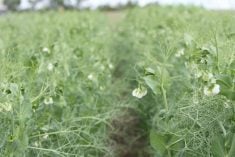It isn’t only Canadian farmers who should be concerned about U.S. president Donald Trump and his policy plans. Despite solid Trump support in rural America, many of his stated policies will adversely impact U.S. farmers.
Here in Canada, we continue to be on tariff watch, but Trump’s proposed tariffs would also hurt many aspects of American agriculture. Already, U.S. farm groups are calling for an exemption on Canadian potash because American farmers have few other viable sources.
Follow all our coverage of the tariffs situation here
Read Also

Budget seen as fairly solid, but worrying cracks appear
The reaction from the agriculture industry to prime minister Mark Carney’s first budget handed down November 4th has been largely positive.
Without other sources, it’s the importer that ends up paying for most or all of a tariff. Potash is a much more important nutrient south of the border than it is up here.
Beyond tariffs, an even bigger Trump promise is the expulsion of illegal migrants. By some estimates, 11 million people are in the U.S. illegally.
While it’s certainly logical to expel illegal migrants that have committed crimes — and Canada could take a lesson from this as well — a widespread roundup will hamstring many aspects of U.S. agriculture.
Who will do the work on dairy farms, orchards, vegetable operations and meat packing plants? In the case of meat packing plants, this could also affect the Canadian livestock industry because a lot of our hogs and cattle are processed in American facilities.
Tariffs and the expulsion of migrants have been central promises. Can Trump keep his farmers happy while he moves aggressively on these files? Will he listen to their lobbying?
Then there’s the installation of Robert F. Kennedy Jr. as U.S. health secretary.
While Kennedy’s anti-vaccine views get the most attention, he has also been a leading opponent of large, “factory” farms and the use of crop protection products. He has attacked many products, including glyphosate, despite reams of studies showing its safety.
If Kennedy’s influence results in fewer crop protection products being registered and available for American farmers, that will make U.S. agriculture less competitive. Unfortunately, it may also place restrictions on what can be used on Canadian food products exported to the U.S.
You may have heard how avian flu has resulted in millions of American chickens being culled and the dramatic increase in egg prices south of the border. Just in the past month, 21 million birds have been affected. That flu is also running rampant in dairy cattle with a small, but increasing number of human infections being reported.
Avian flu is a worldwide problem. God forbid, but this slow-moving train wreck could be the start of the next human pandemic. Having a U.S. administration with anti-vaccine, anti-establishment sentiments may prove to be a failing that goes far beyond agriculture.
Still up in the air is the new administration’s approach to biofuel. Trump has again pulled the U.S. out of the Paris Climate Accord, and his energy policy seems to be summed up by his mantra of “drill, baby, drill.”
While many will agree that the green, woke agenda has escalated to ridiculous levels, biofuel has supported and stabilized grain prices for American farmers and farmers around the world. Up to 40 per cent of the massive U.S. corn crop goes to the production of ethanol each year, and renewable diesel is a large and growing market for vegetable oil.
Biofuel policy is complicated with various credits and exemptions. Massive lobbying occurs both for and against.
How the incoming administration deals with the issue will have a big impact on the demand and therefore the worldwide price for grain and oilseeds.
Kevin Hursh is an agricultural journalist, consultant and farmer. He can be reached by e-mail at kevin@hursh.ca.
















